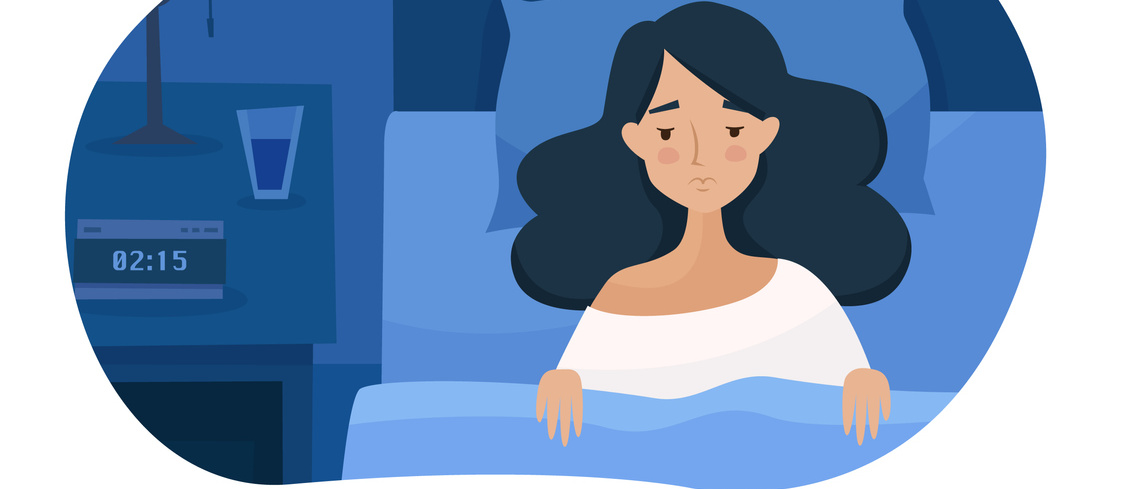
Välj en kanal
Kolla in de olika Progress in Mind-kanalerna.

Progress in Mind

Poor sleep is a modifiable risk factor linked to depression, schizophrenia, and chronic physical diseases – and inflammation may be a mediating factor. APAAM 2021 also heard evidence suggesting that intervention to improve Morning Activity Disorder (MAD) may be a very sane idea.
“Difficulty getting going”, is how many of us describe not being a morning person. Morning Activation Deficit (MAD) is a more technical description. Whatever the terminology, the phenomenon is frequent in depression.1,2
It has been thought that lack of early morning activation is a consequence of depression, but perhaps the reverse is true: depression could be a result of lack of morning activation. If so, encouraging morning activity through scheduling tasks may be a helpful therapeutic approach, suggested Stephen Smagula (University of Pittsburgh, USA).
Low morning activity may lead to depression by allowing more time for thinking about negative emotional content
A neurobiological basis in rumination
Evidence for the hypothesis comes from people who care for patients with dementia and are at risk of depression. Carers with mild-moderate symptoms were compared with those who had few or none.
This pathway may be related to rumination, Professor Smagula speculated. Lack of morning physical activity could contribute to depression by allowing more time for thinking about negative emotional content.
Intervention based on this hypothesis is feasible, he continued. In a pilot study in ten caregivers, therapist-led activity scheduling and monitoring for nine weeks led to a decrease in self-reported morning activity deficits.
In schizophrenia, the interface between disturbed sleep, inflammation and aging is a new target for intervention
Poor sleep a modifiable factor related to excess mortality
The fifteen-year (and growing) gulf in life expectancy between people with and without schizophrenia arises largely from a greater susceptibility to chronic diseases of aging,5 Ellen Lee (University of California San Diego, USA) told the session on sleep and mental health.
Inflammatory processes have been implicated in this earlier onset of age-related pathology (or “inflammaging”) in people with schizophrenia. And poor sleep seems to contribute, she said. Sleep problems affect 30-80% of people with schizophrenia, precede the onset of symptoms, and are associated with worse quality of life and cognitive function.6
Baseline data on a longitudinal cohort of people with schizophrenia and controls cast light on these associations:6
Findings implicate poor sleep and inflammation in cognitive and metabolic dysfunction
Preliminary data also suggest that obstructive sleep apnea is common among people with schizophrenia in the San Diego cohort. It was found in 48% of subjects, but only 6% had been formally diagnosed. Sleep apnea in the study was associated with inflammation and slower processing.
Our correspondent’s highlights from the symposium are meant as a fair representation of the scientific content presented. The views and opinions expressed on this page do not necessarily reflect those of Lundbeck.
1. Hasler BP. Morningness-eveningness and depression: Preliminary evidence for the role of BAS and positive affect. Psychiatry Res. 2010 ; 176: 166–73
2. Van den Berg JF et al. Chronotype and depressive symptoms in students: An investigation of possible mechanisms, Chronobiology International 2018 35:1248-61
3. Smagula SF et al. Activity patterns related to depression symptoms in stressed dementia caregivers. Int Psychogeriatrics 2019; Oct 29;1-8.doi: 10.1017/S1041610219001601
4. Smagula SF et al. Resting-state function connectivity associated with being a "morning-type" dementia caregiver and having lower depression symptom severity. Gerontol B Psychol Sci Soc Sci 2020 Aug 5;gbaa115
5. Lee EE et al. A widening longevity gap between people with schizophrenia and general population: A literature review and call for action. Schizophr Res 2018; 196:9-13
6. Lee EE et al. Sleep Disturbances and Inflammatory Biomarkers in Schizophrenia: Focus on Sex Differences. Am J Geriatric Psychiatry 2018; October 11, 2018DOI:https://doi.org/10